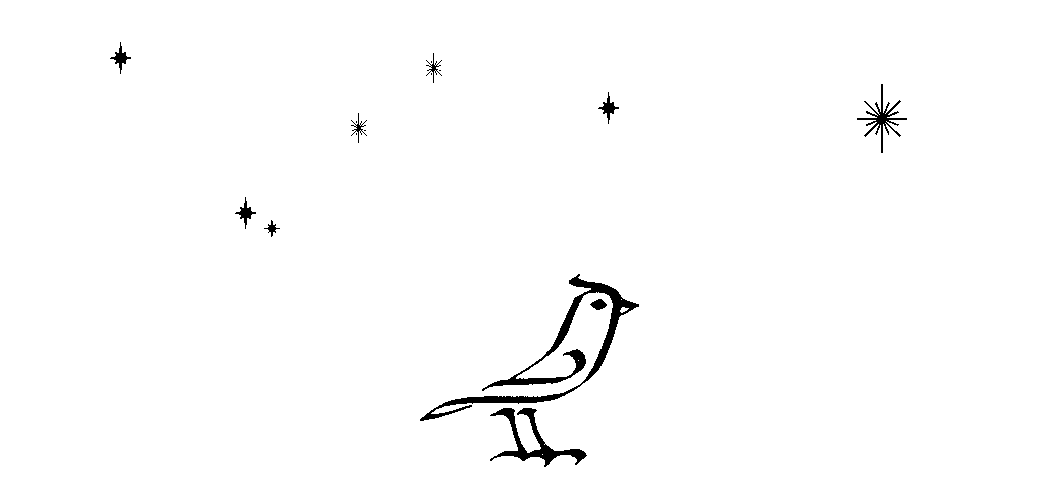Chapter 48: Perspective
After a good night’s sleep and plenty of hot porridge for breakfast, Mati quickly regained her strength, and a new light of confidence showed in her eyes. She and Boro had much to talk about that day. They had both been offered relationships that would include all the pleasures and rewards of marriage and family. A few months before, neither of them could have imagined better fortune.
The old shepherd and his flock returned in the late afternoon just as Neti cut vegetables and Sata added spices to the pot. After tending his animals, he was glad to sit down to a bowl of tasty stew, with plenty of goat cheese on the side.
With the missing traveler back in the circle and spirits lifted, the old man asked for a story. A new tale, called Three Birthdays, was told for the first time, with Buna’s permission — and embarrassment.
The shepherd told of a time when a goat helped him find a lost sheep, and another time when a goat butted a sheep over the edge of a cliff to its death.
Different goat, he explained.
Buna snorted. “Now I’m sure I prefer sheep!”
As evening light faded from the sky, the temperature dropped and cloaks came out. The shepherd said good-night and went about checking on his flock and talking to his dogs.
Toli put another branch on the fire. “Does the trail through the mountains
NEBADOR BookTwo: Journey 265
go near that ten thousand foot peak we measured?”
“I don’t know, Toli. By the way, that peak is ten thousand feet higher than the meadow, which is three thousand feet above sea level.”
“So it’s thirteen thousand feet high!”
Ilika nodded. “That reminds me . . . I haven’t taught you negative numbers yet, have I?”
The crackling of the fire was loud in the silence that followed.
“They’re easy. For many things, we count not just in one direction from zero, but in two directions. For example, sea level is zero, land elevations are positive, and depths in the ocean are negative. The only time they’re a little tricky is when you cross over the zero. Say I am standing on a rock ten feet above the ocean, and I jump down fifteen feet. Where am I?”
Rini
chuckled.
Toli’s hand shot into the air.
Sata
grinned.
“Yeah, I know you three have it nailed already. Miko?”
“Um . . . ten feet above, go down fifteen . . . you are now drowning five feet underwater.”
“Good. Mati, a fish is eight feet underwater, and swims up ten feet.”
“It . . . jumps out of the water two feet . . . and lands in the fisherman’s boat!”
“Right. Kibi, three minus five.”
She took another sip of her tea as she visualized the situation. “Negative two,” she said in a distant voice.
“Yes. Buna, negative two plus four.”
“Oh
shit.”
“Deep breath, picture the situation. You are two feet under water, now jump up four feet.”
“Um . . . I can do it . . . um . . . I’m a little birdie flapping my wings . . . um
. . . two feet up!”
“Perfect!”
Buna wiggled and glowed with happiness. Ilika ended the lesson there, seeing that most of his students were getting sleepy.
After tucking her blankets into her bedroll cover, Mati decided to check on
NEBADOR BookTwo: Journey 266
Tera, who was tied to a tree not far away where she had some grass to eat.
Looking in that direction, she saw Rini already brushing and talking to her precious donkey. Mati smiled and crawled into her blankets.
As a pot of porridge simmered the following morning, the sun rose behind a snowcapped peak, appearing to emerge right out of the top of the mountain.
Ilika overheard chatter as they reminded each other that the two were actually eighty million miles apart.
The old shepherd came out of his goat shed with fresh milk to add to the meal, and a small pot of molasses. “A little something to help celebrate the return of your friend.”
They all glowed with youthful happiness as he added a spoonful of the sweet substance to each of their bowls.
With a warm breakfast under their belts, they made ready to depart, as they knew it would take all day to get over the first mountain pass. Boro bought a sack of smoked mutton from the herder and tied it to the outside of his rucksack, as no one could find any more room in their bags.
They waved good-bye as they took to the trail and the shepherd turned his attention to his flock.
At about three thousand seven hundred feet, the troop paused on the rocky trail. Below them spread the huge meadow where they had worked through their first hard trigonometry project together.
Buna recalled the embarrassing moment when she couldn’t remember how to distribute multiplication, and had to go off by herself to struggle with feelings of failure.
Some of them thought they could see Farmer Koto’s place at the far south end of the meadow, where Misa had acquired her moccasins and sun hat.
Boro remembered the sweetness of the hour he spent with Josa, listening as she revealed her heart’s desire and invited him to stay and share life with her.
Sata remembered different feelings.
They couldn’t see the goat herder’s house, but knew about where it nestled in the trees beside the little stream, and thought they could make out a flock in the meadow. Mati swallowed, realizing how close she came to making that
NEBADOR BookTwo: Journey 267
her new home, and hoping she wouldn’t someday be kicking herself for her decision.
Almost straight below them down the slope, the old shepherd’s cabin was visible. They all liked him, but knew he was now heading northwest with his sheep and goats.
The path angled up a long ridge to the south, and then changed direction at about four thousand five hundred feet. The trees became smaller and fewer as they climbed. Finding a good place to rest, they brought out bread, goat cheese, and plums.
Miko looked to the west where he could see a sliver of the ocean.
Somewhat against his will, the memory of the bluff returned, and his attempt to convince Kibi that Ilika would not be at the emergency meeting place. He was beginning to accept the fact that he was good at certain kinds of leadership, like finding the best way to get from one place to another, but not other kinds. Those other kinds of leadership took something he didn’t yet understand. He kept trying to put his finger on what it was about Kibi and Boro that made Ilika pick them for tough leadership jobs . . . but hadn’t found it yet.
Misa stared southward. The burned area that started a little west of her town, and went for many miles east, could be clearly seen. She hoped with all her heart that her mother and father had run fast enough. But she was ready to accept that even if they had, she couldn’t find them right now. She was with some nice people, she was having adventures and hearing stories, and even thinking about her own story. Maybe someday she would find them.
Maybe she wouldn’t, and would stick with her friend Buna. Or if Buna went on the ship, there would still be four who were staying. She decided, at that moment, to make friends with everyone so she would have someone to stick with no matter who went and who stayed.
Toli was looking in the same direction, reliving the moment the wolf had appeared in front of him. He never consciously decided to run away and leave Mati alone. It was just something his body did, and the next thing he knew, he was cowering behind a log and wondering what had happened. Even though he was fairly sure his chances of being on Ilika’s crew had ended in
NEBADOR BookTwo: Journey 268
that moment of panic, he still wondered if there was any way he could do better next time.
He filled his lungs with the cold mountain air. “I think I should give you a lift, Misa. These sharp rocks are going to slice up your moccasins.”
“That would be fun, Toli. And I’m really sorry I pinched you. That was Misa the Scared Little Kid. This is Misa the Adventurer, and she doesn’t hurt her friends.”
Toli smiled, shouldered his rucksack, and hoisted the seven-year-old onto his shoulders to tackle the next part of the trail, which climbed the rocky slope northward.
At about five thousand three hundred feet, the trail turned directly east toward the pass, but a rock outcropping gave them a better view just a few hundred feet west. The wind was stronger and colder, and the ocean now clearly visible, all the way down to the bay they had visited twice.
For Sata, that bay held special meaning, the place where she finally realized the world could be completely friendly, even though it contained many ways to hurt or kill her. She had struggled with the notion at the steam vent, at the cave near Port Town, and all during their passage north along the coast. She found the courage to put the idea into action when they huddled inside their tiny refuge at high tide and Boro needed help with Tera. When she stepped back onto the beach and walked with her fellow students into that bay, something about her had changed, she was somehow stronger, and all the things out there that could kill her suddenly seemed . . . okay.
She could remember herself before she had gone through that transition.
From where she stood now, the Sata who had once washed tables and delighted in earning a copper piece seemed very small.
That same refuge at high tide taught Neti something different, and she remembered those thoughts and feelings as she gazed southwest toward the bay. Before that day, she had worshipped Miko. He had promised her they would find a way out of slavery and someday have a home and a family, and two months later Ilika selected them and they were free. Her admiration for her true love had not been tarnished at the steam vent. Accidents happen to everyone. But when he panicked in the waterfall bowl at high tide, she
NEBADOR BookTwo: Journey 269
realized he could make serious mistakes, and that she was going to have to stay sharp and make good decisions when he could not. He was just a boy, and even though she loved him, she would have to protect herself . . . and her children.
It was mid-afternoon, and the pass called to them. It looked close now, perhaps just a mile or two away. They shouldered their burdens once more and returned to the trail.
The two priests, wearing satisfied expressions, stepped out of Farmer Koto’s house.
“It’s amazing how little silver it takes to loosen the tongues of peasants,”
one said, staying a half-step behind his superior.
The other was silent and thoughtful as he mounted his horse. Finally, a hundred yards up the road, he spoke. “They’re two days ahead of us, and could easily be deep in the mountains by now . . . or to that blasted monastery.
We’ll have to ride hard.”
They pushed their horses to a trot, knowing such speed would not be possible once they started up the mountain path.
After the eleven travelers walked about five miles from their last stop, they all knew they had greatly misjudged the distance. It was true that the highest point on the trail they could see from their last stop was about two miles away.
Then an alpine meadow stretched for half a mile, the long climb up to the saddle between two peaks took another hour, and finally the slow zigzag through the broken rocks of the pass itself wore them out completely.
When they finally approached the real pass, the wind was threatening to freeze them solid and push them, willing or not, right through the narrow gap.
Ilika’s bracelet informed him they were at seven thousand one hundred feet above sea level.
They braved the wind to look back for the last time, and could see the line of hills that marched eastward from Port Town, but could not see the capital city itself.
Rini was amazed at the beauty and grandeur of everything he could see.
He had no idea if Ilika was going to accept him, or if he was ever going to have
NEBADOR BookTwo: Journey 270
a home and a family with any girl. The present moment, in which his spirit could soar from ocean to mountains, hills to forests, was enough to make him happy. Even if he became a slave again, they could never take away his ability to be filled with the wonder and majesty of everything he saw, everything he touched, even everything he imagined.
Kibi gazed at the scene before her, and at the same time remembered the globe, and how small a part of the world this was. She knew, more than ever before, that she was born to travel to far-away places, see strange things, speak other languages, and befriend people everywhere she went. She couldn’t yet see how she would get there, as every time she imagined herself on Ilika’s ship, sails billowing in the wind, she somehow knew it wasn’t going to be like that. But she knew for an absolute fact that she was going to spend the rest of her life traveling, even if she had to walk.
Ilika was silently amazed at what this assignment — and this kingdom —
had done to him. Just three months before, he thought he could walk into a medieval city, hire five crew members, return to his ship, and leave. It would all take a week at the most. He laughed out loud at himself.
Instead, he was being transformed and remade, like metal in a blacksmith’s forge, and was now part of a flow of people and events that went far beyond himself and his little assignment. He would take with him a crew to which he was deeply bonded, and he would leave behind four people, five if he counted young Misa, who had been changed forever by their time with him, and who would probably go on to change their world.
“I’m freezing!” Misa screamed.
“Let’s get through the gap and down out of the wind!” Kibi yelled.
After one more glance at the western half of the kingdom spread out below them, they turned and filed through the pass, not knowing what awaited them in the mountains, or whether they would ever see the lowlands again.
Deep Learning Notes
As Buna learned by listening to stories, goats are much smarter, and more willful, than sheep. Which animal has the most in common with Ilika’s
NEBADOR BookTwo: Journey 271
students?
Not having the natural math skills of Rini, Sata, and Toli, Kibi learned to use a skill she did have, visualization (mental picture-making), to help her solve math problems. Buna would probably have benefited by the same skill, but was still struggling to get over her fears any time she had to solve a difficult problem.
By faithfully tending Tera, what was Rini communicating to Mati?
Miko, while gazing west toward the ocean, realized the difference between strategic and tactical leadership. Strategy is a high-level thinking process that requires taking into account the broadest possible perspective. Tactics are the steps necessary to implement strategy.
When Misa realized the value of being a good friend to everyone in the group, it had been a week since the fire at Lumber Town. How much had she grown up in that week, compared to most weeks in most people’s lives?
The fully self-reflective thinking of Sata as she looked toward the bay is a key feature of sapience, or wisdom-potential. People like to think it is uniquely human, but it has been proven to exist in many other animals, both birds and mammals. In humans, it generally arrives with puberty, but that seems to be coincidental, as it sometimes manifest several years before, and sometimes not for many years after.
Were Neti’s realizations about Miko’s weaknesses good for their relationship, or bad for it?
What do we know of Farmer Koto’s values after the priests visited him?
In your opinion, did Ilika’s superiors think it would take him just a week to hire his crew, or did they know something like this journey would be necessary?
NEBADOR BookTwo: Journey 272
In your opinion, is the learning and growth that takes place during a journey like this possible without the danger?

About the Author
Born in the Mojave Desert, J. Z. Colby now lives and writes deep in a forest of the Pacific Northwest.
He has studied many subjects, formally and informally, including psychology, philosophy, education, and performing arts, but remains a generalist. His primary profession as a mental health therapist, specializing with families and young adults, gives him many stories of personal growth, and the motivation to develop his team of young critiquers and readers.
All his life, he has been drawn toward a broad understanding of human nature, especially those physical, emotional, mental, and spiritual situations in which our capacity to function seems to reach its limits. He finds fascinating those few individuals who can transcend the limits of our common human nature and the dictates of our cultures.








